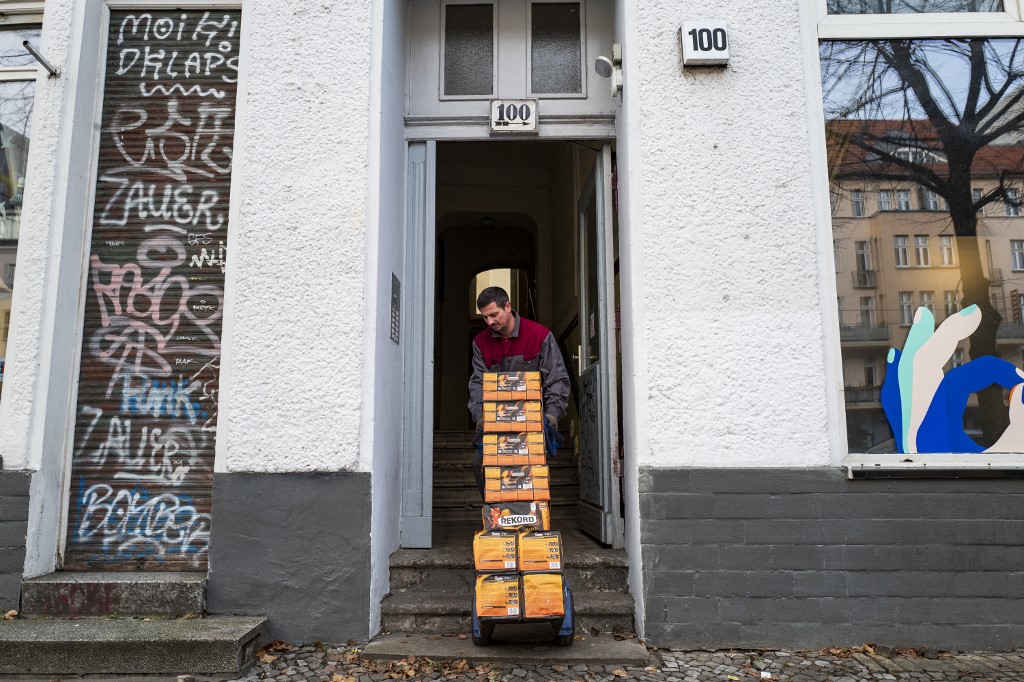
by Raphaelle LOGEROT
Agence France-Presse
BERLIN, Germany (AFP) – Alban Nikolai Herbst’s Berlin apartment is covered in dust, his precious record collection included, thanks to a coal-powered stove he still uses to heat his home like thousands across the city.
Germany’s new government is set to extinguish the at-home heat source from a bygone era as part of its ambitious climate plans, as it looks to cut harmful emissions linked to climate change.
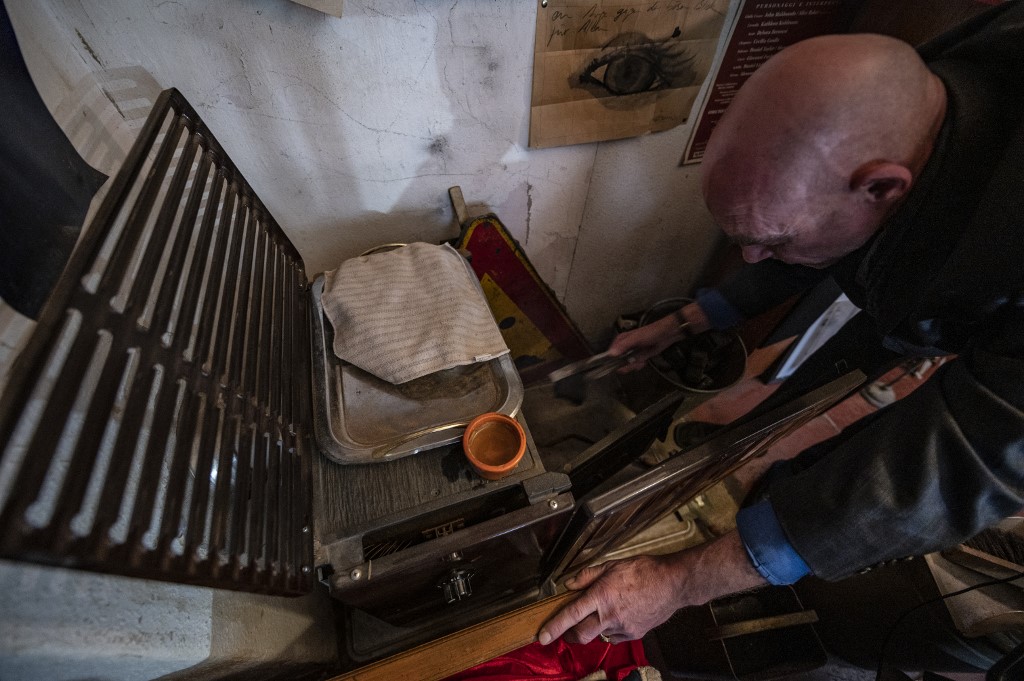
But Herbst says he remains attached to his coal-powered stove, which he clings to for “sentimental” reasons.
Arriving in Berlin in the mid-1990s, Herbst discovered an odour that had long disappeared from the streets of western cities, where — unlike in the ex-communist east — domestic coal burning had died out.
The “heavy heat” emanating from his stove suits his work as a writer too.
“I am always at my desk. I work from six o’clock in the morning to 10 at night sometimes,” he says.
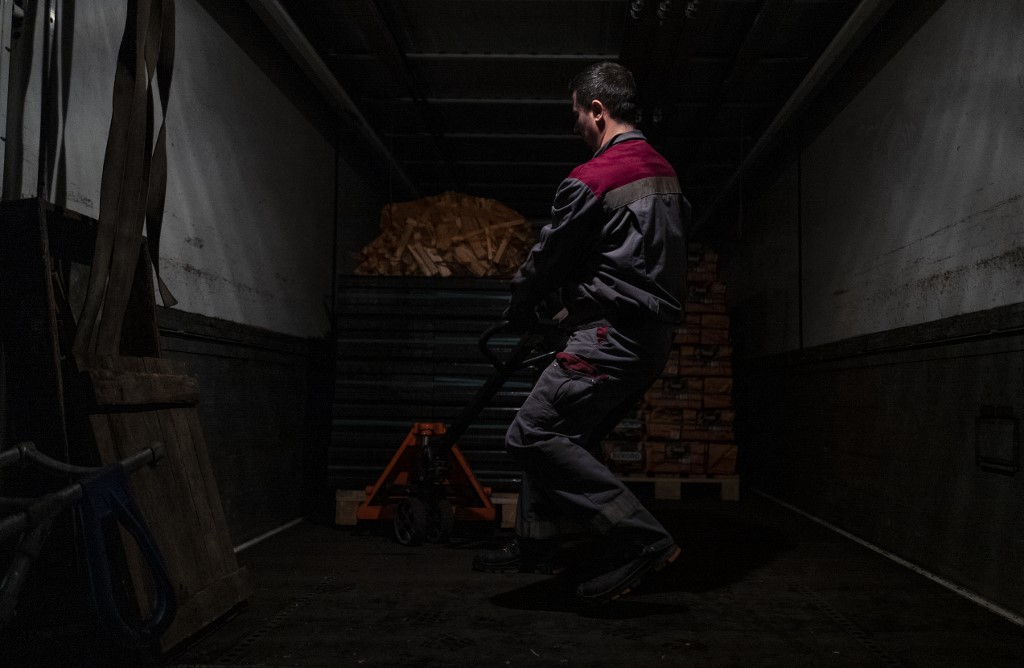
Hans Engelke Energie supplies much of the coal used in the ovens across Berlin, and estimates between 5,000 to 6,000 homes still rely on the retro heat source.
The family-run business is one of the last in Berlin still delivering briquettes of black coal to customers.
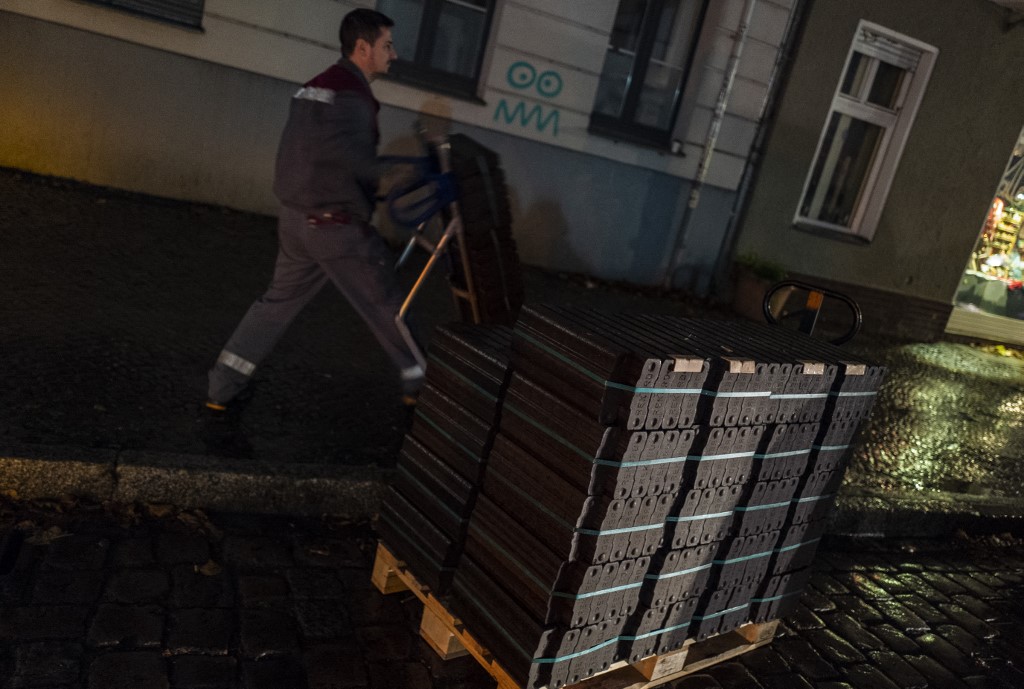
It has had to diversify over recent years to survive, and now delivers home heating oil and wood pellets.
“We sell gas and electricity, too,” says company co-head Peter Engelke, adding that the company “hopes to prosper for a long time”.
Germany’s new government, which took office this month, has made the battle against climate change a priority, announcing a target to phase out the use of coal by 2030.
Chancellor Olaf Scholz’s coalition has pledged to expand renewable energy and decrease reliance on sources such as Russian gas in the long run.
Some Berlin residents have already made the shift at home.
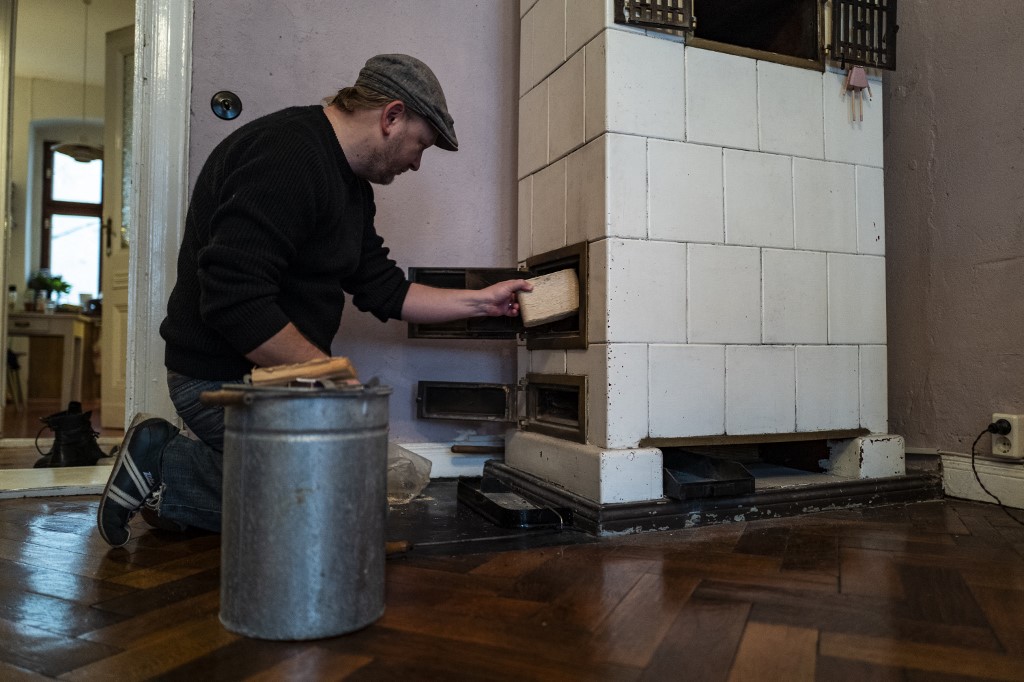
Graphic designer Robert Schumann, who lives in the east of the city, still uses his ceramic stove to heat his home, but has dropped the coal in favour of wood.
“It’s more ecological,” he says, drawing a comparison with fossil fuels excavated from the earth.
“Less ash, and it’s a more sustainable energy source because trees grow back.”
© Agence France-Presse








